She Bounces Back: Lighting the last mile in Asia, Africa and Latin America
Including women at the heart of crisis recovery efforts will boost the economy and remove barriers to the creativity, perseverance and success of female entrepreneurs. At #SheBouncesBack, @UNWomen has invited female small and medium-sized business owners to tell us about fighting the pandemic from the economic frontlines. Please join us and share your story!Date:
Author: Liu Di
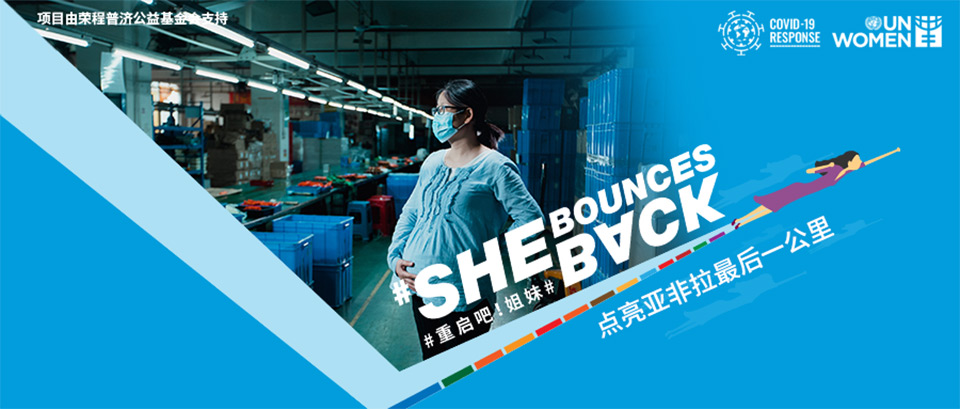
There are still 840 million people still living without electricity – most of them in poor and remote areas. While those who can afford it will buy kerosene lamps or candles, many people live in complete darkness once night falls, and this figure will have increased during the pandemic when so many have lost their livelihoods. Kerosene and candles also offer poor quality light at a high cost to the environment – one kerosene lamp can emit one ton of carbon dioxide in five years.
Li Xia and her Shenzhen-based company, Shenzhen Power-Solutions, are committed to providing safe, effective and low-cost clean energy lighting equipment for those at the bottom of the pyramid in Asia, Africa and Latin America who do not have a stable power supply. When the low purchasing power of their customers dropped even further during the pandemic, Li Xia and her team continued to innovate, determined to light up the last mile of Asia, Africa and Latin America.
At the beginning of the pandemic I was worried that if someone in the factory got infected then the whole factory would be shut down and put in quarantine. I was pregnant at the time and almost forty years old. I only slept for a few hours each day, and I was scared that my baby’s health might be affected by my stress levels, or exposure to the virus at work.
The reopening of the factory was repeatedly delayed because of the pandemic. The government required that companies have sufficient anti-pandemic supplies in order to open. Yet at the time, these were not only very expensive but were also in severe shortage. Several times we heard that disinfectant or masks were available somewhere, but by the time we arrived they were already sold out. By acting quickly, we finally managed to purchase the items we needed across multiple channels and to submit the necessary documents. We were one of the first companies that reopened.
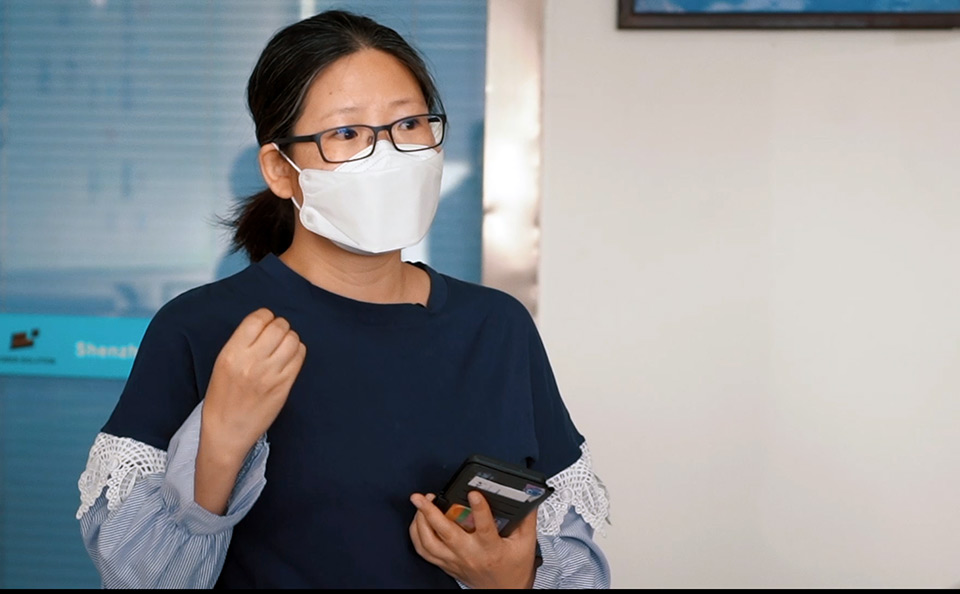
On the first day of the reopening, I told all employees that the company had been in business for 15 years and that our most valuable assets were our good employees and long-term customers who trusted us. I told them that together we could overcome any difficulty.
Yet the real difficulties were still to come. Only nine out of 60 workers returned to work at the start, but we had 28 orders waiting to be completed. The price of our raw materials rose due to production being suspended. What made it worse was that some of our foreign customers cancelled their order or asked for delayed shipping. We had a backlog of goods worth CNY 400,000 in the company’s warehouse. Shortly after that, several customers cancelled their orders and this cut off our cashflow.
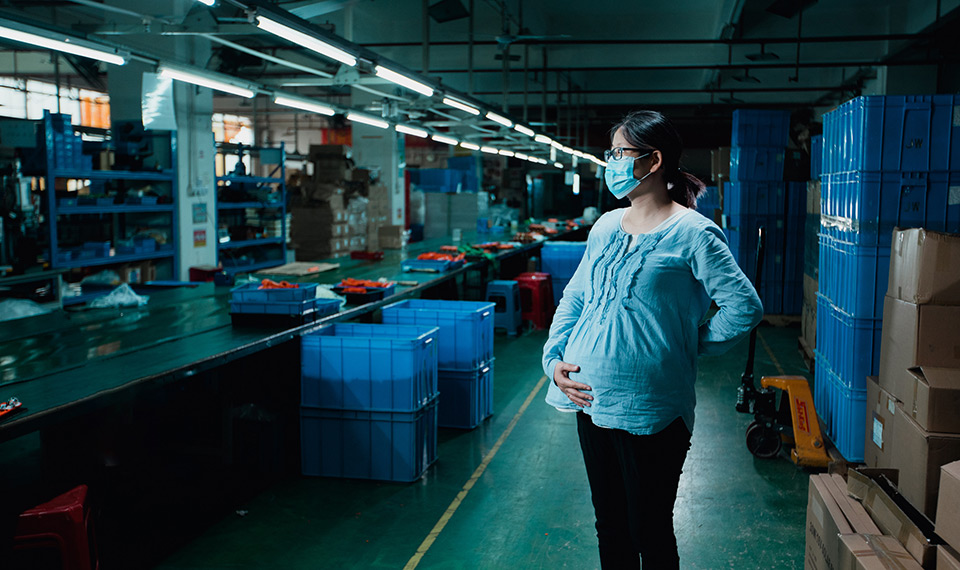
I was worried that we wouldn’t be able to pay our staff their wages on time. As the saying goes, ‘when the hand stops the food stops’, and this is especially true for frontline workers. Some of our workers are breadwinners for their family, and we all went through a lot of stress. I followed up with a number of major customers myself and even they were telling me to take more rest. But looking at the products piled up in the warehouse, I only had one thought: to save the cashflow so that everyone could work.
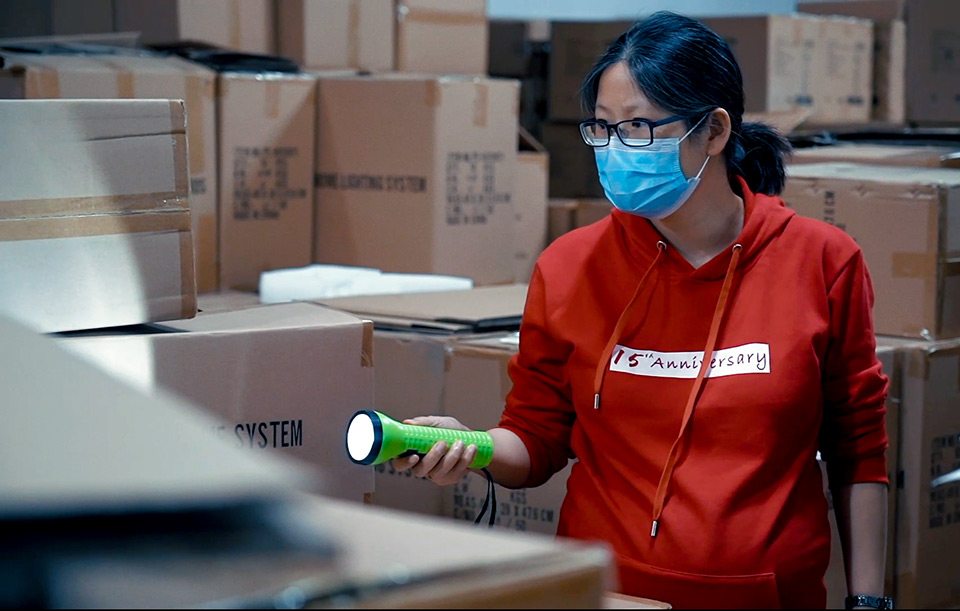
We started to search for domestic material suppliers to replace the original ones, focused on contracted manufacturers, where we could strictly control the quality. We applied for bank loans from the banks but were unsuccessful because of the demand, and the perceived risk of our customers being mostly from developing countries that were at high risk in the pandemic. As a result, our current capital is totally self-funded.
The Canton Fair was a turning point for us. It was switched online, and through it we managed to bring multinational companies onboard as new customers and obtain supplier qualifications for several big companies. As a result of this we were able to deliver goods worth millions of CNY during the pandemic, which hugely boosted our confidence. When anti-pandemic supplies such as masks were in short supply, we even contracted a mask production line to work for us. This increased the total supply of masks to the market, and somewhat alleviated our urgent need for cashflow.
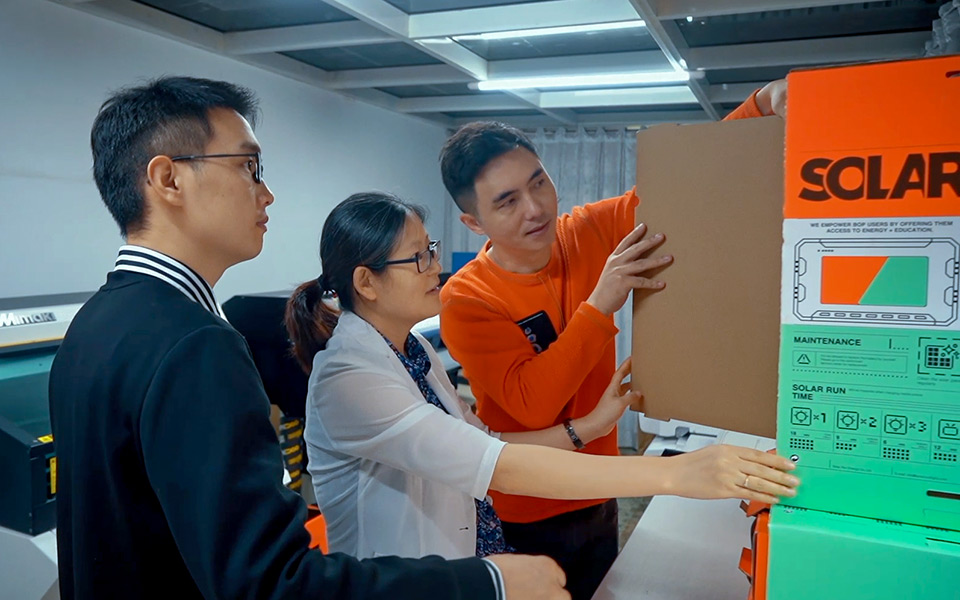
This crisis period also made us aware of underlying problems in the company, so after reopening we improved our internal processes and systems, expanded our product lines, and developed new products with sterilization and antivirus functions for the pandemic. We moved much of our operation online, which was unimaginable before, for a traditional manufacturing enterprise like us.
I saw that working women faced much greater challenges during the pandemic, but their resilience was truly inspiring. Many female employees were also mothers, with kids taking online classes at home. At lot of moms were forced to leave their jobs because of this, while those who didn’t were exhausted every day because they were essentially doing two full-time jobs. As the head of a company, I was under even greater pressure. I really hope that society and families can provide more support and acknowledgement to women in business.
Despite the considerable challenges, our woman-owned company has thrived. There were no layoffs, no pay cuts, and there was no production suspension. We even took on new employees and new customers. I myself gave birth to a healthy baby, who is now more than 50 days old. I am now a tired but happy breastfeeding working mother.
This era should give more support to women. If given a fair chance, women can make outstanding achievements with their own efforts and strength."
Li Xia signed the CEO Statement of Support for the UN’s Women’s Empowerment Principles during the pandemic on behalf of Shenzhen Power-Solution Ind Co., Ltd, pledging: “I would like to use new energy as an opportunity to empower women in developing countries with equal rights so that more women can live a decent and dignified life. ”
As David Bernstein once said in his book, How to Change the World, Social entrepreneurs are creative individuals who are driven by ideals – who question the status quo, open up new opportunities, refuse to give up, and finally rebuild a better world. Goal 7 of UN’s Sustainable Development Goals is to "ensure that everyone has access to affordable, reliable and sustainable modern energy”.
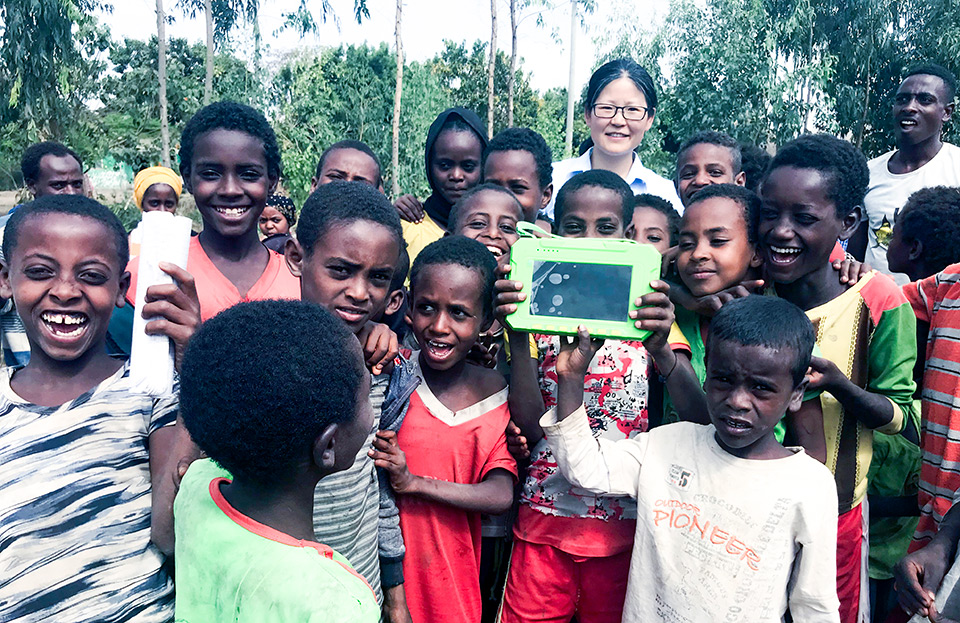
Providing financial support for women-owned enterprises and industries, and fair working conditions for female employees.
Women-owned enterprises are particularly vulnerable to economic shocks, largely because they are more dependent on their own funds. Discriminatory ideas limit the ability of women to obtain services and funds from financial institutions for themselves or their businesses, which means that women-owned small and medium-sized enterprises (SMEs) are more likely to be disadvantaged in the COVID-recovery process, and are less likely to survive. A gender perspective is therefore critical as governments and financial institutions start to provide the financial support and credit needed by these companies to rebound and thrive.
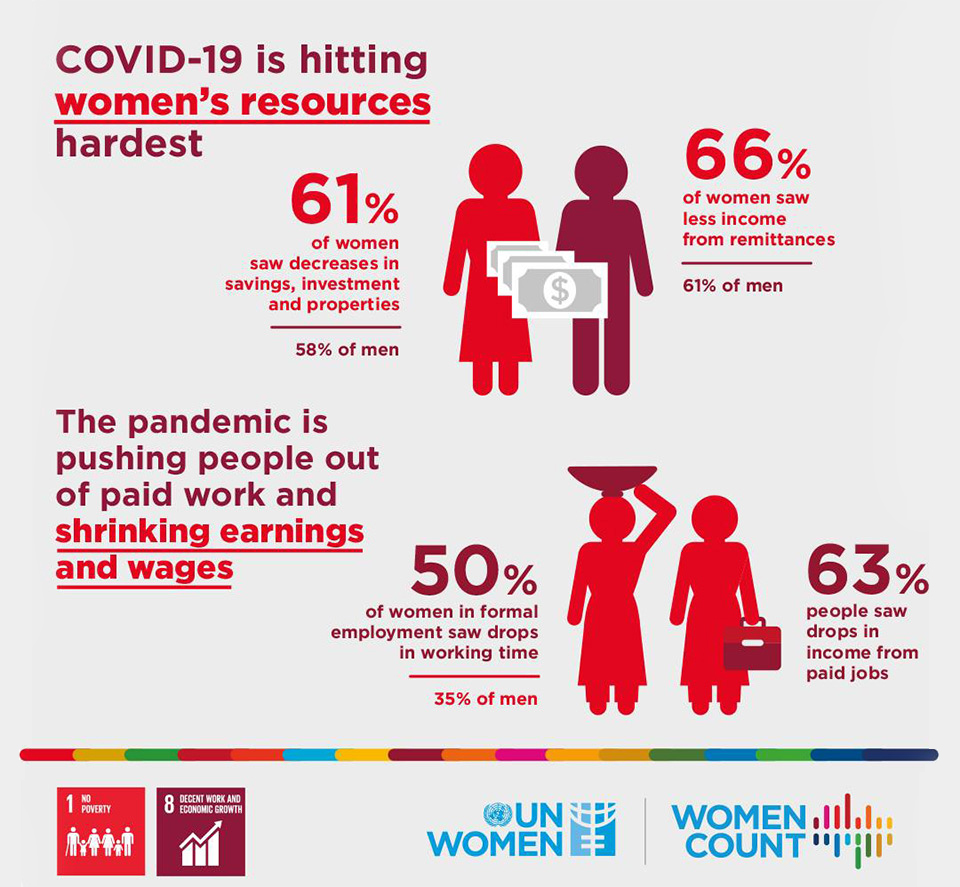
Meanwhile, women employees and business owners often face particular challenges and disadvantages compared to most men, such as greater care burdens at home and poorer access to networking and learning opportunities. These differences are rarely responded to by the business environment, which means that women often unjustly work harder for less, particularly during crises. Past experience has shown that incorporating gender equality into a company’s business recovery strategy – including its business operations and workplaces, markets, and communities – can bring resilience and economic benefit, along with other advantages such as building the workforce morale and company brand. This can include offering flexible working arrangements and leave with re-entry to positions of equal pay and status, offering child support and health insurance, including for part-time workers, and ensuring the appointment of women to managerial and executive positions.
The #SheBouncesBack campaign is part of the UN Women project, ‘Supporting Women to Recover from the Socio-economic Impacts of COVID-19’, supported by the Rockcheck Puji Foundation. The project aims to help women-owned small and medium-sized enterprises and women employees recover from the economic impact of the pandemic by increasing their capacity and resilience, while raising public awareness of the need for gender equality in business. #SheBouncesBack was launched on World Entrepreneurs Day on 21 August 2020 and reached more than 940,000 people in its first two weeks via WeChat and Weibo. Note: UN Women does not endorse any of the above-mentioned companies, brands or products.